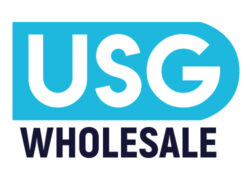How Predictive Analytics is Revolutionizing Wholesale Business in 2025
In today’s rapidly evolving wholesale landscape, businesses that can anticipate market trends, customer behavior, and operational challenges hold a significant competitive edge. Predictive analytics has emerged as a game-changing technology that transforms raw data into actionable insights, enabling wholesale companies to make smarter decisions and drive sustainable growth.
What is Predictive Analytics?
Predictive analytics is a branch of advanced analytics that uses historical data, statistical algorithms, and machine learning techniques to identify patterns and predict future outcomes. For wholesale businesses, this means leveraging vast amounts of transactional data, customer information, and market trends to forecast everything from demand fluctuations to supply chain disruptions.
Unlike traditional reactive approaches, predictive analytics empowers wholesale companies to be proactive, addressing challenges before they impact operations and capitalizing on opportunities as they emerge.
Key Applications of Predictive Analytics in Wholesale
1. Demand Forecasting and Inventory Optimization
One of the most impactful applications of predictive analytics in wholesale is demand forecasting. By analyzing historical sales data, seasonal patterns, economic indicators, and market trends, wholesale businesses can:
- Predict future demand with remarkable accuracy
- Optimize inventory levels to reduce carrying costs while avoiding stockouts
- Identify slow-moving products before they become dead stock
- Plan procurement schedules more effectively
For example, a wholesale electronics distributor can use predictive models to anticipate demand spikes for specific products during holiday seasons, ensuring adequate stock levels while minimizing excess inventory.
2. Customer Behavior Analysis and Segmentation
Understanding customer behavior is crucial for wholesale success. Predictive analytics enables businesses to:
- Identify purchasing patterns and predict future buying behavior
- Segment customers based on value, risk, and growth potential
- Predict customer churn and implement retention strategies
- Personalize product recommendations and pricing strategies
By analyzing factors such as order frequency, average order value, payment history, and product preferences, wholesale companies can create detailed customer profiles that drive targeted marketing and sales efforts.
3. Price Optimization and Dynamic Pricing
In the competitive wholesale market, pricing strategy can make or break profitability. Predictive analytics helps businesses:
- Analyze competitor pricing and market dynamics
- Predict price elasticity for different products and customer segments
- Implement dynamic pricing strategies that maximize margins
- Identify optimal discount strategies that drive volume without eroding profits
4. Supply Chain Risk Management
Supply chain disruptions can have devastating effects on wholesale operations. Predictive analytics provides early warning systems by:
- Monitoring supplier performance and predicting potential delays
- Identifying alternative suppliers before disruptions occur
- Predicting transportation and logistics bottlenecks
- Assessing geopolitical and economic risks that could impact supply chains
Benefits of Implementing Predictive Analytics
Enhanced Decision-Making
Predictive analytics transforms gut-feeling decisions into data-driven strategies. Wholesale managers can make informed choices about inventory investments, customer relationships, and market expansion based on statistical evidence rather than intuition.
Improved Cash Flow Management
By accurately predicting demand and optimizing inventory levels, wholesale businesses can significantly improve cash flow. Companies report inventory reduction of 20-30% while maintaining service levels after implementing predictive analytics solutions.
Increased Customer Satisfaction
Predictive analytics enables wholesale companies to anticipate customer needs, ensuring product availability and timely delivery. This proactive approach leads to higher customer satisfaction scores and stronger business relationships.
Competitive Advantage
Early adopters of predictive analytics gain significant advantages over competitors who rely on traditional forecasting methods. The ability to anticipate market changes and respond quickly creates sustainable competitive differentiation.
Risk Mitigation
Predictive models help identify potential risks before they materialize, allowing businesses to implement preventive measures. This proactive risk management approach can save companies millions in potential losses.
How Predictive Analytics is Revolutionizing Wholesale Business in 2025
Implementation Strategies for Wholesale Businesses
Start with Data Quality
Successful predictive analytics begins with clean, accurate data. Wholesale companies should:
- Audit existing data sources for completeness and accuracy
- Implement data governance policies to maintain quality
- Integrate disparate data systems for a unified view
- Establish data collection standards for future consistency
Choose the Right Technology Stack
Modern predictive analytics solutions range from cloud-based platforms to on-premise installations. Key considerations include:
- Scalability to handle growing data volumes
- Integration capabilities with existing ERP and CRM systems
- User-friendly interfaces for non-technical staff
- Real-time processing capabilities for time-sensitive decisions
Build Internal Capabilities
While external consultants can provide expertise, building internal analytical capabilities ensures long-term success:
- Train existing staff on data analysis techniques
- Hire data scientists or business analysts
- Create cross-functional teams that combine domain expertise with analytical skills
- Establish analytics governance to ensure consistent methodologies
Overcoming Common Challenges
Data Silos and Integration Issues
Many wholesale companies struggle with fragmented data across multiple systems. Successful implementation requires breaking down these silos and creating unified data architectures that provide comprehensive views of business operations.
Change Management and User Adoption
Introducing predictive analytics often requires significant changes to established processes. Companies must invest in training, communication, and change management to ensure user adoption and maximize return on investment.
Balancing Accuracy with Actionability
While highly sophisticated models may provide marginal accuracy improvements, they often lack interpretability. Wholesale businesses should focus on models that provide actionable insights rather than pursuing perfect accuracy at the expense of usability.
Looking Ahead: The Future of Predictive Analytics in Wholesale
As artificial intelligence and machine learning technologies continue to advance, predictive analytics capabilities will become even more powerful and accessible. Future developments include:
- Real-time predictive insights that adapt to changing conditions instantly
- Advanced scenario modeling that helps evaluate multiple future possibilities
- Automated decision-making for routine operational choices
- Predictive maintenance for equipment and infrastructure
How Predictive Analytics is Revolutionizing Wholesale Business in 2025
Predictive analytics represents a fundamental shift from reactive to proactive business management in the wholesale industry. Companies that embrace these technologies today will be better positioned to navigate future challenges and capitalize on emerging opportunities.
The question is no longer whether wholesale businesses should implement predictive analytics, but how quickly they can build these capabilities to maintain competitiveness in an increasingly data-driven marketplace. By starting with clear objectives, investing in quality data infrastructure, and building analytical capabilities, wholesale companies can transform their operations and create sustainable competitive advantages.
Ready to harness the power of predictive analytics for your wholesale business? Start by assessing your current data capabilities and identifying the most impactful use cases for your organization. The future of wholesale success lies in the ability to predict, prepare, and prosper.


